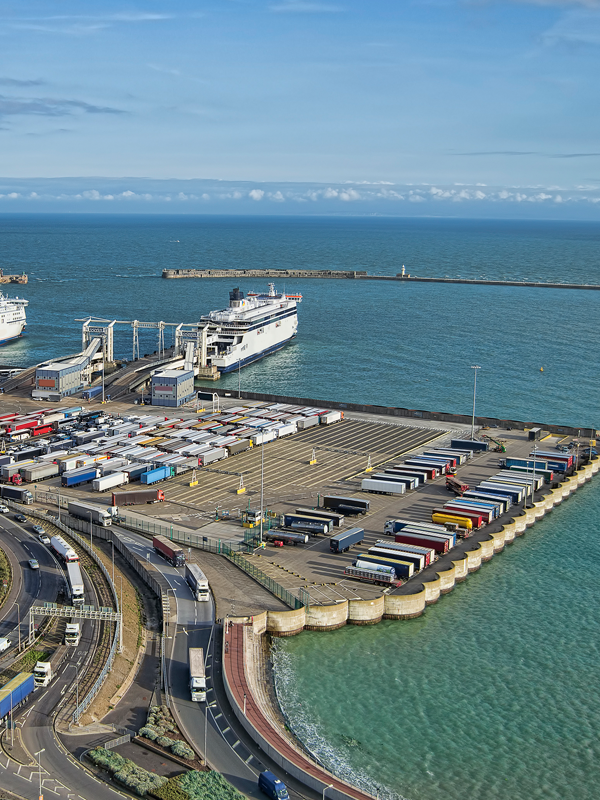The Latest from the UK Border
In the dynamic world of border security and facilitation, the UK Border Force is continuously shaping its strategies and processes to create a more secure and efficient border experience. The recent updates shared in the August 2023 Stakeholder Bulletin shed light on several significant initiatives that promise to transform the landscape of border control. From innovative technological advancements to policy changes aimed at improving passenger experiences, this article provides an in-depth summary of all the information you need to know.
Introduction of Future Border Immigration Systems (FBIS)
The Border Transformation Delivery Team introduced the Future Border Immigration Systems (FBIS) program during a series of transformation sessions. The aim of FBIS is to offer passengers an experience marked by clarity, consistency, simplicity, and predictability when interacting with border agencies.
Central to this endeavor is the introduction of automated systems in maritime ports for border entry. A successful proof-of-concept in May 2023 demonstrated automated biometric identity capture, and plans now extend to analyzing port layouts and infrastructures to implement innovative solutions. The introduction of automation will be conducted in collaboration with port operators and the Border Force, with initial surveys serving as a foundation for future developments.
Next Generation eGates Announced
In April, the Home Office unveiled its plans to revolutionize border control with the introduction of future generation eGates. The procurement process has taken a significant step forward, as the detailed dialogue stage with potential bidders has concluded. The next phase involves interim bid responses, which are due by the end of August 2023.
The UK Border Force have also conducted a successful user trial to recognise the evolving needs of families, resulting in a change in eGate eligibility for accompanied children. The age threshold for children to use e-gates has been lowered from 12 to 10 years old across all e-gate ports. This alteration not only enhances passenger flow but also creates a smoother border experience for families with children. Extensive research and considerations went into this change, aligning with safeguarding principles and ensuring the security of vulnerable passengers.
The Border Transformation Project
In July, the Border Transformation Team took time to engage with industry partners in the passenger rail and maritime sectors. These initial transformation sessions featured valuable insights and feedback from experts in the field, allowing the team to take another step closer to fulfilling their goal of building a world-leading border.
This ongoing transformation is characterised by vigorous development, with an emphasis on understanding the “end states” for passenger and goods traffic. Notable discussion points included flow management, systems enhancement, data sharing, customer experience, port individuality, and infrastructure considerations. It is hoped that close collaboration with government colleagues and industry partners will shape the strategic alignment across various sectors, ensuring a seamless and secure border experience.
Anticipating Change with EES and UKIMS
The European Entry/Exit System (EES) is poised for implementation after the the Paris Olympics in 2024. EES will require non-EU citizens traveling into the Schengen Zone (excluding Ireland) to provide biometric data during entry. Automated kiosks, handheld tablets, and an app for pre-registration will facilitate data capture. The UK Government is working collaboratively to manage potential impacts, ensuring minimal disruptions and a smooth transition for travelers.
Additionally, the UK Internal Market Scheme (UKIMS) has been unveiled as a streamlined alternative to the UK Trader Scheme (UKTS). Open for registration, UKIMS aims to simplify the movement of ‘not at risk’ goods into Northern Ireland. The expanded scheme broadens eligibility criteria, increases turnover thresholds, and accommodates specific sectors. The transition process involves communication with HMRC and adherence to enrollment criteria.
Preparing for the Upcoming ETA Scheme
The Future Borders & Immigration System Engagement Team spent time assessing the impact and nuances of the upcoming implementation of the Electronic Travel Authorisation Scheme ETA. The scheme which was recently announced by the UK Government plans to transform the UK border by introducing more streamlined, digital systems in a move designed to enhance the experience of travellers and make entering and leaving the UK far more efficient.
The resulting Q&A document from FBIS addresses queries about the ETA scheme to further support its seamless implementation. Collaborative efforts with Home Office Communications have fostered productive discussions with ports and carriers, ensuring a comprehensive understanding of ETA processes.
In Summary
The latest bulletin from UK Border Force is packed full of meaningful updates and future insights that will be of interest to everyone travelling into and out of the UK. The key focuses of the bulletin were:
- The introduction of next generation eGates
- The ongoing Border Transformation Project
- How the team are preparing for the European Entry/Exit System (EES)
- The proposed introduction of the UK Internal Market Scheme (UKIMS)
- Insights into the upcoming Electronic Travel Authorisation (ETA) scheme
All of this underscores the UK Border Force’s commitment to innovation, collaboration, and security. Through various initiatives, the Border Force is charting a course toward a technologically advanced, secure, and streamlined border experience that balances safety and efficiency for passengers and goods alike
Related Articles
Australian Expansion
As part of our strategic global growth plans, Gray Dawes Group has acquired the Melbourne based travel management business, Verve Travel And Leisure, including both the business travel division, Verve Travel Management, and the leisure travel retail agency, Bay Travel and Cruise.
Experience the Difference with Singapore Airlines
We recently caught up with our friends at Singapore Airlines to talk about their selection of cabins, their newly refurbished airport lounges, and the experience they bring to business travellers.
The Pioneering Contributions of Black People to Air Travel
The history of black people in aviation reflects a wider struggle for equality, defined by exclusion, systemic racism, and a fight for recognition. In the early days of flight, opportunities for black people to enter aviation were extremely limited. In this article, we take a look at some of the black pioneers of the sky, explore how air travel was a tool of social justice, and glimpse into the future of diversity in the aviation industry.







